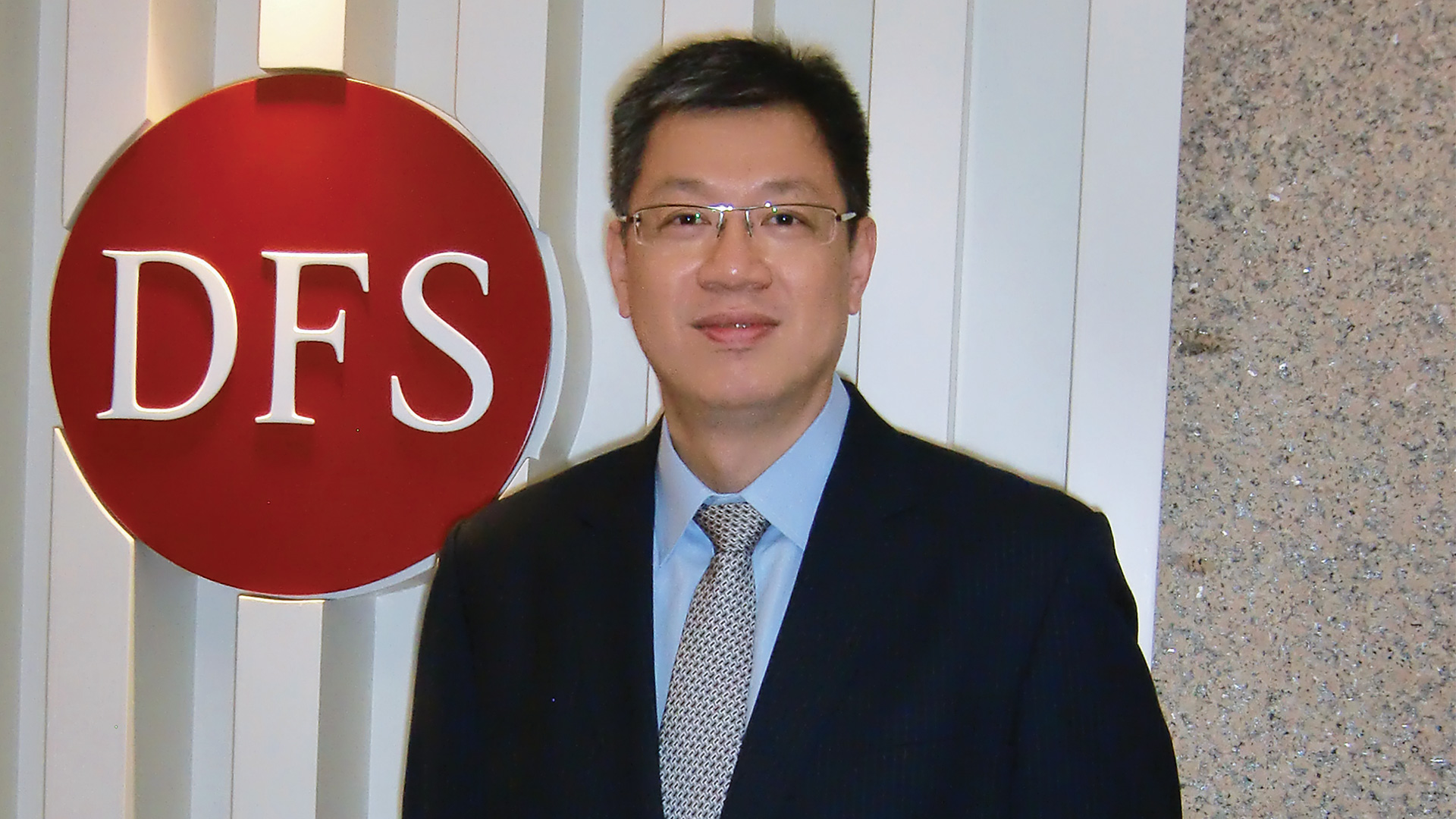
Having been at the helm of the DFS treasury team for over a decade, Kenneth Ng has seen the profession go through some fundamental changes. Here he talks about these changes and how the rise of innovative technology may see it evolve even further in the near future.
You have been working at DFS for over ten years now. How has the role of treasury and its status within the organisation changed within that time?
Since the global financial crisis there has been a paradigm shift in both the role of treasury and its status within the organisation. Whereas prior to the crisis, treasury was seen as an important function, there was perhaps a lack of understanding within the business about the risks the department is exposed to. After all, the department’s chief counterparty is the banks, who before 2008 were seen as being quite safe. As a result, treasury largely operated in the background with little C-level focus.
It was apparent that everything changed from the onset of the crisis, however. Almost immediately I had management and C-level executives in frequent contact, asking about the risks the banks posed to the business and how we should think about structuring our banking relationships moving forward – typically all very treasury-related discussions.
Since then, treasury has stayed in the spotlight and grown to become a strategic, value-adding and cross-functional department within the organisation. In turn, this has made the role that more complex, and called for treasurers to not only have ‘traditional’ treasury skills, but also to possess soft skills, such as being able to effectively communicate with both financial and non-financial people.
What issues have recently been causing a headache for the DFS treasury department?
FX volatility has been a big issue of late. We operate across three continents, receiving and making payments in a variety of local currencies, so have a large FX exposure. At one time we used to manage this exposure by carrying out wholesale FX transactions and then either sweeping the funds back to corporate level, or transferring the funds to local procurement teams in their required currency.
However, the recent volatility has rendered this approach obsolete. We now split these large trades into smaller numbers – a $5m currency swap, will now be conducted as five individual $1m currency swaps, for instance. This ensures that we are able to achieve the best pricing and also enables us to manage our exposures more carefully.
Of course, as a result of this approach the number of transactions that we conduct has increased substantially. We have therefore recently begun using Thomson Reuters FXall to automate all our FX trading activity.
Aside from FX, regulation continues to provide a significant challenge, especially in countries such as India, where capital controls make it challenging to move cash out of the country. These controls mean that we have to approach funding our businesses in India in a very nuanced manner, not only considering their short-term financing needs, but also the long-term cash management implications.
We also currently have a lot of questions around Brexit. At present we are speaking to numerous merchant acquirers to provide services to our Venice store, which opens later this year. Some of these are based in the UK and we have questions around whether they will be able to continue to provide their services in Europe once the dust settles in the coming years. We have also told our procurement teams to carefully monitor any merchandise payments they are making in sterling, as this has become particularly volatile of late and can have an impact on earnings.
How are the banks performing? Are they able to meet your needs and expectations?
Overall, I am happy with the services provided by our banking partners. We closed a club loan deal last year with ten banks involved and these share the bulk of our wallet. Within this group there are a mixture of Asia domiciled banks, who have particular expertise in markets such as China and Japan. We then work with others who have a large footprint across Asia and are able to support our broader regional operations. Finally, we have some European banks that are able to service our needs in that region.
Whilst I do think that the banking sector in general has become quite commoditised in recent years, there are some, a number of whom we work with, that are looking to offer value-add services. This may be simply providing more advice around regulatory changes, or investing heavily in their technology to be able to offer insights into our business.
On that point, what impact is technology and the rise of fintech companies having on your operations, if at all?
Technology is transforming the profession and it is vital that treasury stays abreast of and embraces these changes where possible. As a company we are very keen to explore new technologies. We have implemented a number of solutions recently, including automated FX dealing. We were also one of the first companies in Asia to implement a cross-border, multi-currency, sweeping solution.
Our philosophy is that if the solution works and can help lower our costs, drive efficiencies and help the business perform better, then it is something worth exploring further.
I can’t see the proliferation of technology and the changes it is forcing abating any time soon. Indeed, if anything the changes may only become more acute. At present, we are very comfortable leveraging the offerings of banks and established technology companies. But this may change in the future as the current wave of fintech companies and their products mature.